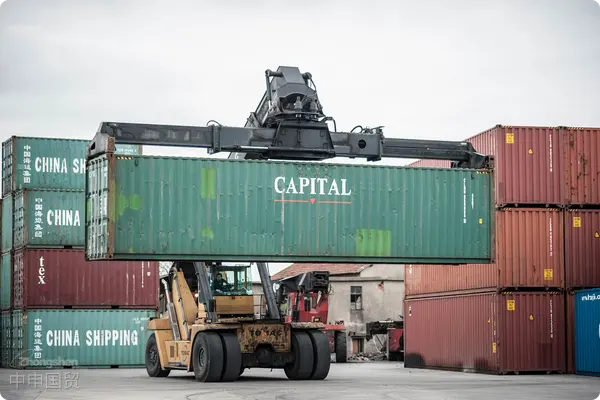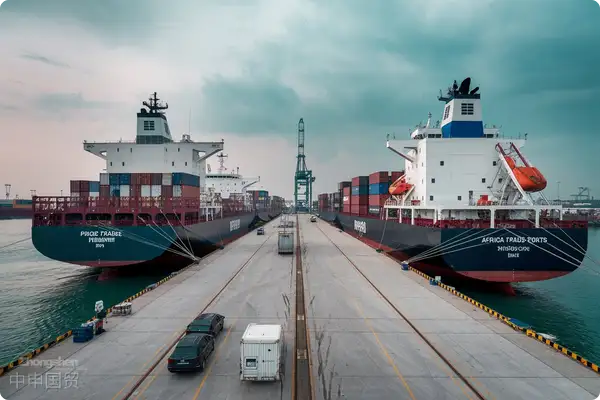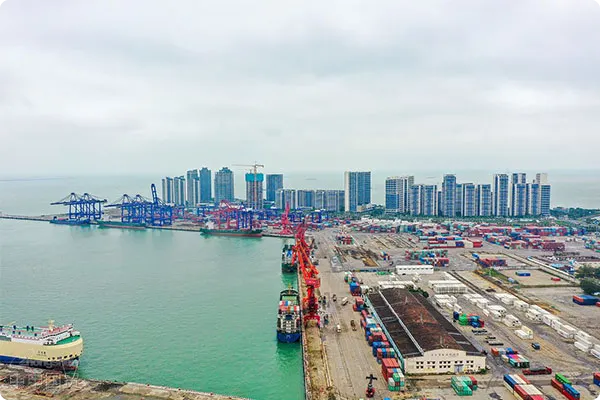- Shanghai Zhongshen International Trade Co., Ltd. - Two decades of trade agency expertise.
- Service Hotline: 139 1787 2118

On the grand stage of international trade, entrusted agencyExport Drawbackis a focus for many enterprises. Clear entrusted agency export tax rebate standards are key to ensuring enterprises smoothly obtain rebates, safeguarding legal rights, and standardizing export tax rebate operations. This article will detail various aspects of entrusted agency export tax rebate standards, including their covered elements, followed principles, and their significant importance to enterprises.
I. Elements of Entrusted Agency Export Tax Rebate Standards
Subject Qualification Standards
- For the entrusting party, it must be an enterprise or other unit with export operation rights. This means the enterprise must legally obtain corresponding operational qualifications, such asforeign tradeapproval procedures from the commerce department. If the entrusting party lacks legal export operation rights, the entire entrusted agency export tax rebate operation will not meet the standards and cannot proceed normally with the rebate process.
- The agent must also meet specific qualification requirements. The agent enterprise should generally possess foreign trade agency qualifications registered with customs, tax authorities, etc. They need to be familiar with export business processes, customs and inspection regulations, and tax rebate policies to ensure they can handle export tax rebate matters for the entrusting party according to standards.
Goods-Related Standards
- The goods must be genuinely exported. This requires complete logistics and transportation records, from the goods shipping location to the export port and final destination, with corresponding documentation for each step. For example, the goods bill of lading, shipping documents, etc., must match the information on the customs declaration to confirm the goods have indeed left the country.
- The goods tax rebate rate is also an important part of the entrusted agency export tax rebate standards. Different types of goods have different rebate rates, determined based on national industrial policies, trade policies, etc. The agent must accurately determine the goods category to identify the corresponding rebate rate. Additionally, the goods production, procurement, etc., must comply with relevant tax and trade regulations, such as legal raw material sources and environmentally compliant production processes, to ensure they enjoy the corresponding rebate treatment.
II. Principles Followed by Entrusted Agency Export Tax Rebate Standards
Principle of Legality
– The entire process of entrusted agency export tax rebates must strictly comply with national laws and regulations. This includes customs supervision rules, tax authorities rebate policies, etc. Neither the entrusting party nor the agent can obtain tax rebates through illegal means such as fictitious transactions or forged documents. For example, documents required for tax rebates such as customs declarations and special VAT invoices must be authentic, legal, and valid. Any tampering or forgery of documents constitutes a serious violation of the principle of legality and will be severely penalized.
Principle of Authenticity
– In addition to the actual export of goods, financial aspects must also reflect authenticity. Financial data such as sales revenue and cost accounting involved in entrusted agency export tax rebates must truthfully reflect the transaction situation. When assisting the entrusting party with tax rebates, the agent must ensure the authenticity of financial statements, such as maintaining reasonable prices for exported goods without artificially inflating or deflating them to manipulate rebate amounts. Meanwhile, expenses related to export operations must have reasonable justification to ensure the accuracy and compliance of tax rebate calculations.
Principle of Compliance
– Compliance covers all aspects from business processes to document management. In terms of business processes, both the entrusting party and the agent must sign an entrusted agency export agreement following prescribed procedures, clearly defining the rights and obligations of both parties. The agreement should include clauses on tax rebates, such as the allocation of rebate amounts and the assumption of rebate risks. In document management, all documents used for tax rebates must be filled out, stored, and submitted in the prescribed format. For example, special VAT invoices must comply with tax authorities invoicing standards, customs declarations must be accurately reported as per customs requirements, and these documents must be properly stored for a certain period for tax authorities inspection.
III. The Significant Importance of Entrusted Agency Export Tax Rebate Standards for Enterprises
Safeguarding Enterprise Rights
– Clear entrusted agency export tax rebate standards provide enterprises with a basis for protecting their rights. When both the entrusting party and the agent operate according to these standards, their rights can be effectively protected. For the entrusting party, if the agent fails to process tax rebates according to standards, leading to rebate failure or reduced rebate amounts, the entrusting party can hold the agent accountable based on the standards. Conversely, the agent can also ensure their operations are conducted legally and compliantly under the standards, avoiding repercussions from the entrusting partys violations.
Promoting International Trade Development
– Adhering to entrusted agency export tax rebate standards helps promote the healthy development of international trade. In international trade, export tax rebates are an important policy to encourage exports. When enterprises can smoothly obtain rebates according to standards, their competitiveness in the international market is enhanced, thereby expanding export volumes. Meanwhile, the regulatory role of standards can prevent unfair competition, such as fraudulent rebate claims, fostering a fair international trade environment.
Facilitating Tax Administration and Supervision
– Unified entrusted agency export tax rebate standards facilitate tax authorities administration and supervision. Tax authorities can review enterprises rebate applications based on standards, improving efficiency and accuracy. By promptly approving compliant applications and correcting or penalizing non-compliant ones, tax authorities can better safeguard national tax interests and ensure the effective implementation of rebate policies.
Conclusion
Entrusted agency export tax rebate standards are crucial guidelines that enterprises must follow in entrusted agency export operations. They cover various elements such as entity qualifications, goods-related requirements, and principles to follow, playing a significant role in safeguarding enterprise rights, promoting international trade, and facilitating tax administration. As the international trade environment evolves and domestic tax policies adjust, entrusted agency export tax rebate standards must continuously improve. Enterprises and agencies should closely monitor policy changes to ensure their operations always comply with standard requirements.
Related Recommendations
? 2025. All Rights Reserved. 滬ICP備2023007705號-2  PSB Record: Shanghai No.31011502009912
PSB Record: Shanghai No.31011502009912










